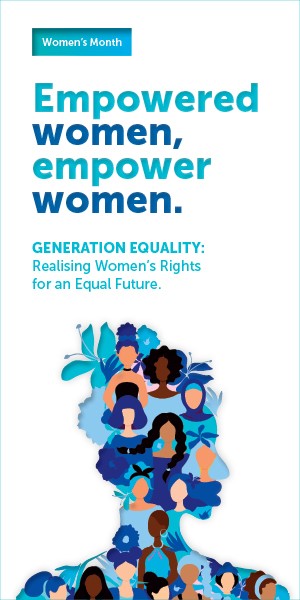Hangwelani Magidimisha-Chipungu is a professor in town and regional planning at the University of KwaZulu-Natal, where she made history by being the first black South African woman to graduate with a PhD in the subject.
Magidimisha-Chipungu has a long list of titles and accolades to her name, including being an National Research Foundation-rated researcher and South African Research Chairs Initiative chairperson for inclusive cities, serving as a city planning commissioner for eThekwini municipality with the responsibility of strategically advising the executive committee and councillors.
She has also served on the advisory committee of cooperative governance and traditional affairs, where she advised the office of the premier in KwaZulu-Natal on spatial equity. Furthermore, Magidimisha-Chipungu is a chair for transformation committee member, The South African Council for Planners, a national professional body that governs the country’s teaching, and practice of, town planning.
At a global level, Magidimisha-Chipungu served the International Society of City and Regional Planning (ISOCARP) in co-directing the first workshop for Young Professional Planners (YPP) in South Africa in 2016, and was recognised as the most influential woman by the UK’s The Planner magazine.
Magidimisha-Chipungu says that throughout her career, she has learnt that you don’t have to be great to start, but you have to start to be great.
“I have fallen several times in my life but I refused to remain on the ground. It’s not how many times I have fallen, but how many times I got up after falling. That is how I measure my success,”
she says.
And speaking of her numerous successes, Magidimisha-Chipungu is an award winner by nature. She was honoured by ISOCARP for the outstanding role she played during the YPP workshop and for her participation in organising the congress in September 2016.
Commenting on introducing the concept of group supervision, she says: “In my field, innovation is often seen as the ability to create value for use by others, and this has been my strategy when reaching out to others.
“One of my innovative interventions focuses on ways to enable a greater number of students to complete their master’s degree programmes in a relatively short period of time, while still in keeping with university regulations. The approach of group supervision removed the element of solitude among students, and helped to boost their morale.
“The graduation of many students in a relatively short space of time was enough testimony to the success of this intervention measure.”
Magidimisha-Chipungu, who is also the founder and chief editor of the Journal of Inclusive Cities and Built Environments, says that if she could achieve one thing for South Africa, it would be to “make cities more inclusive, smart and resilient”.



























